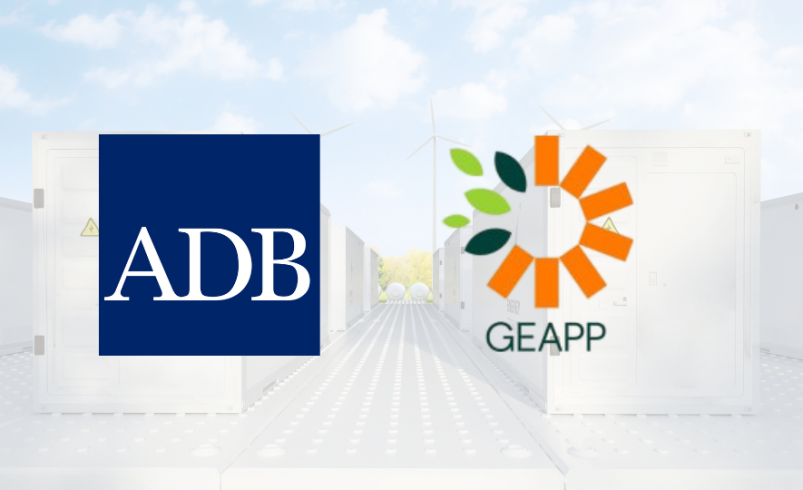ADB and GEAPP team up to fast-track battery storage rollout in APAC
- June 19, 2025
- 0

The Asian Development Bank (ADB) and the Global Energy Alliance for People and Planet (GEAPP) have launched a new platform to speed up the use of battery energy storage systems (BESS) in Asia and the Pacific.
The platform, called ENABLE (Enhancing Access to Battery Energy Storage System for Low-carbon Economies), will help countries roll out battery projects faster by offering technical support, early project development, and innovative financing. ADB and GEAPP have committed a combined USD 750,000 in initial funding to get it off the ground.
“ENABLE addresses key barriers by providing technical expertise, project development support, and innovative financing solutions that will help countries integrate more renewable energy into their grids,” said Cindy Cisneros-Tiangco, ADB Director for Emerging Areas in the Energy Sector Office.
Battery storage is increasingly seen as essential to stabilizing power grids and making renewable energy more reliable. Between 2023 and 2028, Asia and the Pacific are expected to add around 430 gigawatts of renewable energy—mostly from solar. Without battery storage, much of that energy risks being wasted or straining existing grids.
“The rapid growth of renewables in the region represents both an achievement and a challenge,” said Kitty Bu, GEAPP’s Southeast Asia Vice President. “Through ENABLE, GEAPP is helping address the critical battery storage gap that could constrain the region’s clean energy potential.”
In its first three years, ENABLE will focus on Vietnam, Mongolia, and Cambodia—offering tailored support such as technical studies, policy advice, procurement guidance, and new business models for battery storage. Over time, the platform aims to expand to more countries in the region.
In the Philippines, large-scale battery storage is still at an early stage. Policies are starting to support it—such as the inclusion of energy storage in the country’s green energy auctions—but progress is slow due to high costs and technical hurdles.
“To support this transition, we see BESS as a key enabler in managing renewable energy variability and strengthening overall grid stability,” said Energy Assistant Secretary Mylene Capongcol during the Asia Clean Energy Forum.
She added, “Cost remains a significant challenge for IRESS projects, but we remain confident in the long-term value of storage in achieving our energy targets.” The Philippines has set a target of 1.1 GW of storage capacity through its Green Energy Auction Program.
By building a pipeline of investment-ready projects and improving the policy and financial environment, ENABLE aims to make battery storage a core part of the region’s clean energy future.
Will ENABLE help solve Southeast Asia’s energy storage bottleneck? Share your thoughts.
Follow Power Philippines on Facebook and LinkedIn or join our Viber community to stay up to date on the latest energy news.